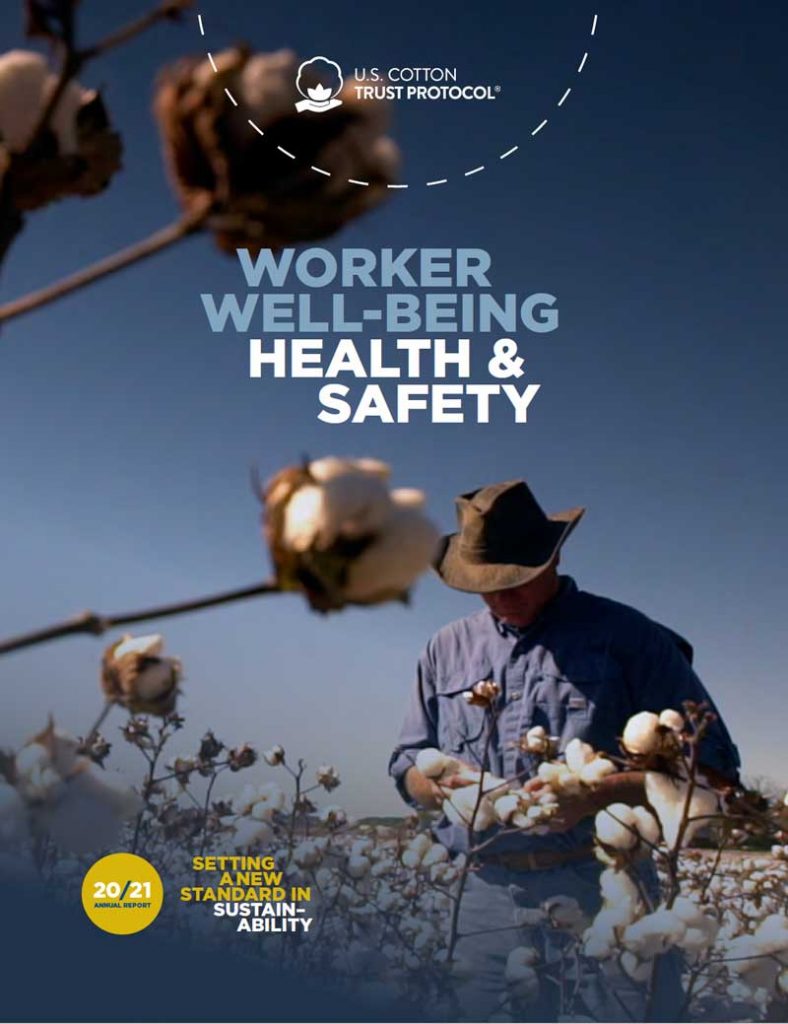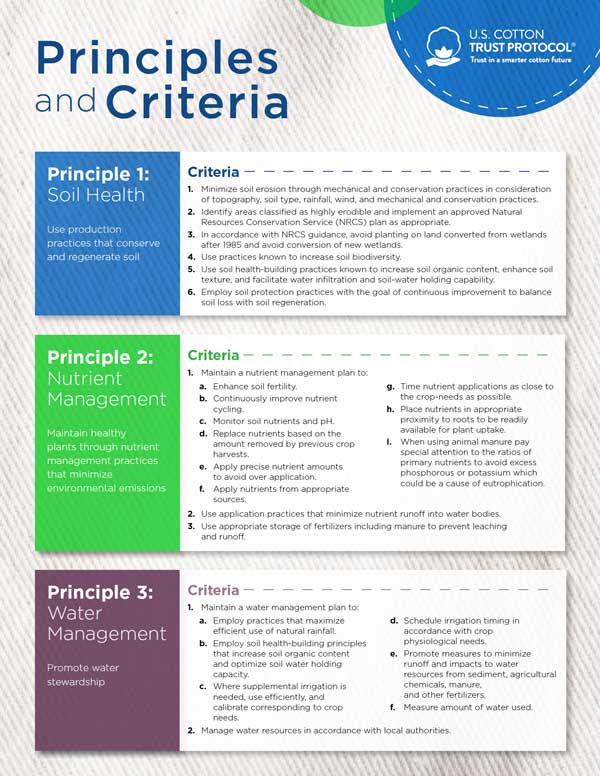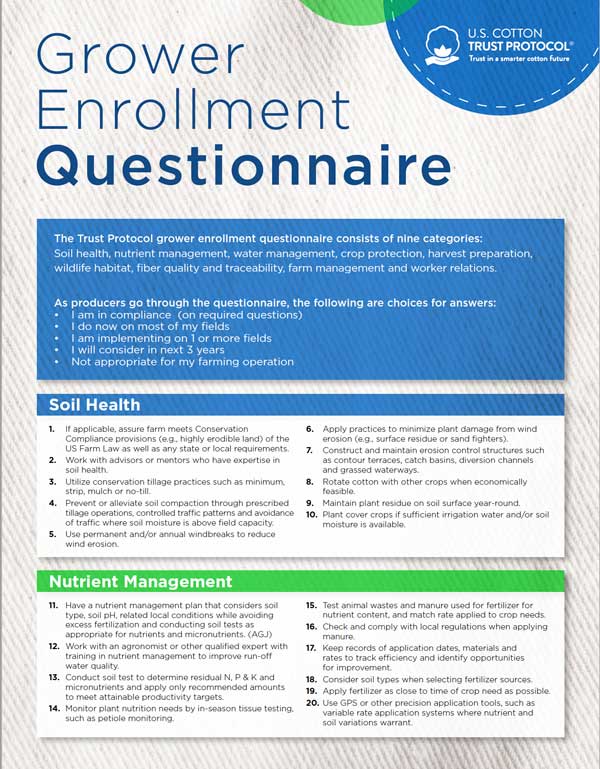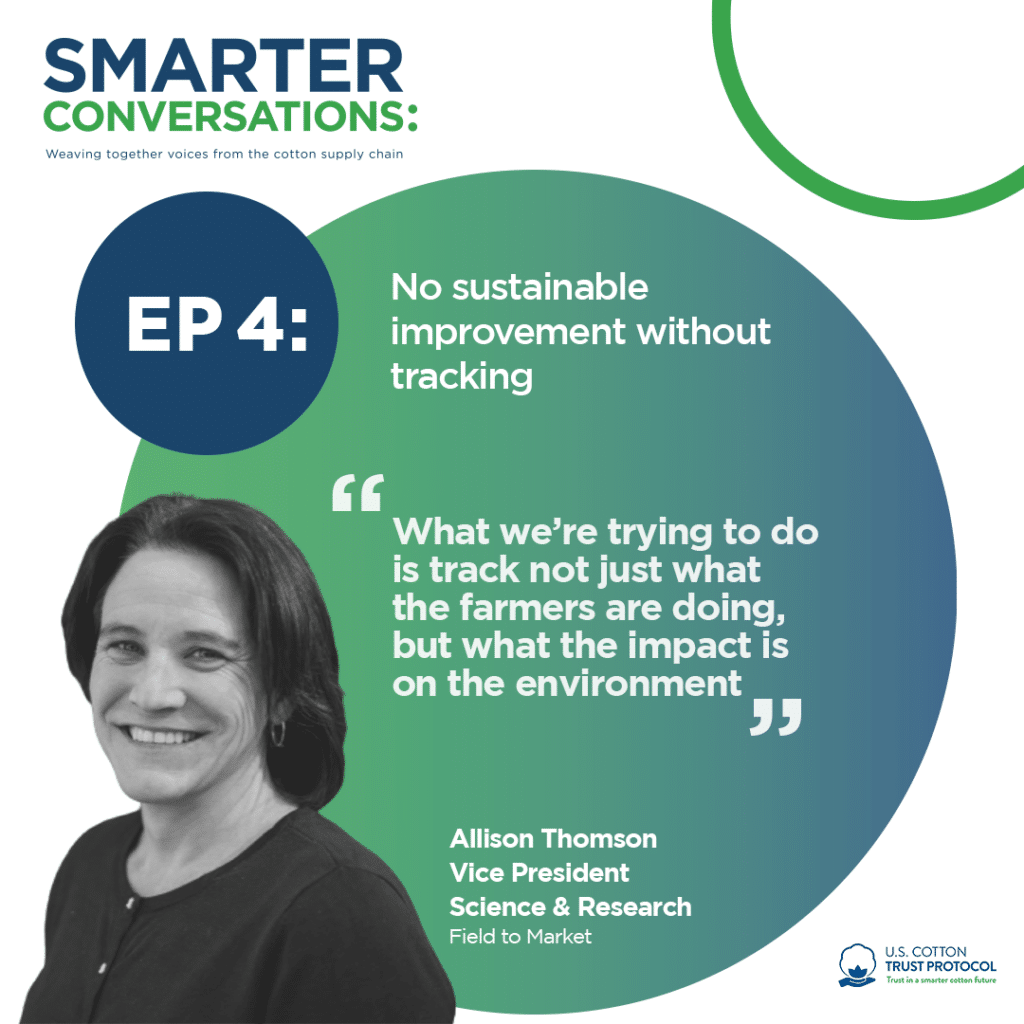Worker Well-Being
We recognize employee and worker well-being is an important part of any business operation, including throughout the cotton growing process. The Trust Protocol makes sure that all of our members recognize this principle as well.

Trust Protocol Criteria
A key principle of the Trust Protocol is safe labor and worker well-being. In order to become a grower participant, individuals must adhere to 12 criteria to ensure that relevant U.S. regulations are upheld.
- Workers are treated fairly
- Wages equal to or higher than required by law are provided
- Working hours comply with national and state law
- Children are not exploited in any form
- There is no forced, compulsory, bonded or trafficked labor
- Workplace is kept safe by minimizing hazards
- Discrimination of all forms is forbidden
- Equal wages are paid to workers who perform the same job, regardless of gender, race, or ethnicity
- Safe and hygienic sanitation is accessible
- Potable drinking water and wash-water are provided
- Workers have freedom of associations
- Abuse or harassment of any kind is not tolerated
Each grower participant must answer a 120-question assessment that includes a comprehensive section on worker well-being. Within the questionnaire, the Trust Protocol mandates that all federal and state regulations are strictly followed. If any individual registers for the Trust Protocol but does not adhere to our worker well-being principles, they are denied membership. Furthermore, each member must re-enroll every year and re-verify that they are in compliance with all regulations treat their employees fairly. Our second- and third-party verification processes work as another layer of security, allowing us to verify that all standards are met.
Resources
Safe Labor Practices
There is no forced labor in U.S. cotton production. This includes incarcerated persons and child labor.
The U.S. Department of Labor also enforces the Fair Labor Standards Act which restricts the employment and abuse of child workers. Provisions under the act are designed to protect children’s access to education and prohibit them from jobs that are detrimental to their health and safety. Child Protective Services (CPS) is the governmental agency in many states of the United States that responds to reports of child abuse or neglect. The Child Abuse Prevention and Treatment Act provides federal funding to States in support of prevention, assessment, investigation, prosecution, and treatment activities and also provides grants to public agencies and nonprofit organizations for demonstration programs and projects. In terms of farm work, minors need to be 16 to be employed by their parents in any capacity on a farm owned by their family.
The Trust Protocol makes sure that all members abide by these laws.
Crop Protection
Farming operations that producer cotton must meet a variety of stringent regulations and standards that protect workers, consumers, and the environment. One aspect of cotton production in the U.S. is the use of pesticides, but EPA regulations mandate that farmers provide training and inform workers about pesticide safety, provide protections from potential exposure, and have plans to mitigate exposure all in ensuring the safety of employees. The EPA also ensures that workers have training and the ability to safely handle, store and apply pesticides.
All regulations relevant to cotton production, including EPA, FDA, and OSHA laws, must also be followed throughout the ginning process.
Episode 4 of Smarter Conversations
No Sustainable Improvement without Tracking
This is a scene-setting episode talking about the U.S. Cotton Trust Protocol, how it fits in to the sustainability landscape, why it’s important. Our guests talk about what the Trust Protocol can offer for its members.





